Triangle of Sadness wins the Palme d’Or at Cannes Film Festival
While Triangle of Sadness won the main prize, Australian director Gina Gammell was recognised for her debut film War Pony.
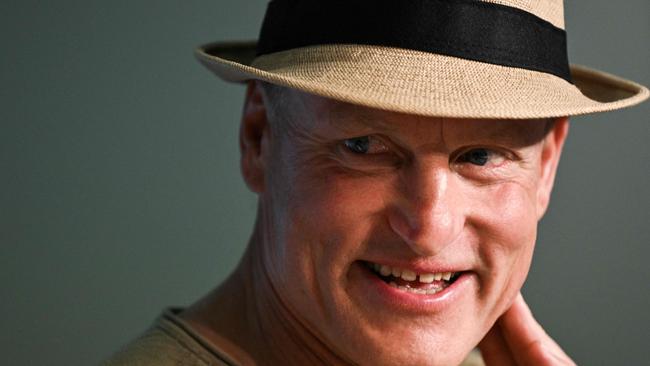
French and Belgian films have dominated awards at the Cannes Film Festival, with many of the prizes being awarded to those who have won before. At one point it was thought latecomer Lukas Dhont’s Close and Jean-Pierre and Luc Dardenne’s Tori and Lokita would somehow share the Palme d’Or. But that didn’t happen, as Swedish director Ruben Ostlund’s satirical Triangle of Sadness emerged as the big winner.
The film, which played to a rapturous crowd last weekend, is the English-language debut for Ostlund, who won the 2017 Palme d’Or for The Square. After examining the art world in that film, the writer and director, whose wife is a fashion photographer, has this time ventured into the fashion industry. Again, he wanted to entertain and provoke.
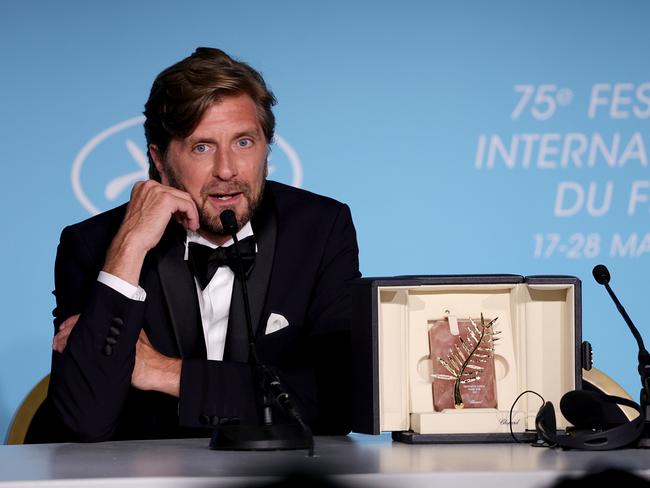
Triangle of Sadness follows the sinking of a cruise ship for the filthy rich, including fashion models and influencers, and what happens after the passengers are trapped on an island. Woody Harrelson plays a scene-stealing supporting role as the ship’s Marxist captain.
Ostlund was ebullient at the winner’s press conference regarding his second Palme d’Or win. “The first time is great, the second time, it’s like, ‘Oh wow, you’re part of the history of cinema’,” he says.
As he explains Triangle of Sadness: “The characters are stuck on a deserted island where all hierarchies are gone and we have to rebuild them. I like to make a wild entertaining cinema like when you have good conversations with your friends – when you’re laughing while talking about important things.”
It seemed unlikely the Dardenne brothers would achieve a record third Golden Palm, after Rosetta in 1999 and The Child in 2005, so Tori and Lokita was awarded a specially created prize for the festival’s 75th anniversary. Their African refugee story was clearly close to the heart of jury president Vincent Lindon, who had starred in Philippe Lioret’s 2009 refugee drama, Welcome. The director-heavy jury also included Iranian Asghar Farhadi who has made films that pose moral questions like those from the Dardennes.

Meanwhile, Dhont, 31, shared the Grand Prix with iconic French director Claire Denis.
Close is a follow-up to Dhont’s 2018 film, Girl, the story of a transgender ballet dancer that won multiple Cannes awards including the Camera d’Or for best first film. Close again deals with gender issues in its story of two 13-year-old best friends, Leo (Eden Dambrine) and Remi (Gustave De Waelle), who may be gay. After Remi is bullied by his classmates, Leo distances himself from his friend and tragedy ensues. Dhont is a huge talent to watch, and the two young actors give standout performances.
Interestingly, Emilie Duquenne, the surprise Cannes best actress winner for Rosetta at the age of 17, plays Leo’s mother. Close has already been announced for the Sydney Film Festival.
With Stars at Noon, Denis works in English, directing her adaptation of Denis Johnson’s novel. Set in 1984, the film stars Margaret Qualley (seen in The Maid alongside mum Andie MacDowell on Netflix) as Trish, a secretive, headstrong journalist who is stuck in Nicaragua without a passport and has resorted to prostitution to keep herself afloat. When she meets mysterious English businessman Daniel (Joe Alwyn) initially it is for money but then they fall in love.
Two of the great Asian auteurs, Japan’s Hirokazu Koreeda and South Korea’s Park Chan-wook, brought their new films to the Cannes competition.
Both have strong Cannes pedigrees: Koreeda won the Palme d’Or for Shoplifters in 2018 and Park won the Grand Prix for Oldboy in 2004 (after jury head Quentin Tarantino failed in his bid for the film to win the Palme) and competed in 2016 with The Handmaiden.

While this year Park won the directing prize for his stylish detective drama, Decision to Leave, Parasite star Song Kang-ho took out the best actor award for Koreeda’s Broker. Koreeda, a specialist in family dramas, actually set and shot his adoption story in South Korea with the Parasite star portraying the father figure in a makeshift family of small-time crooks. The cutest baby I’ve ever seen in a movie steals the show. Broker, which received a 12-minute standing ovation (matched only by Elvis), also won the Ecumenical Jury award for best film. The best actress prize went to Iran’s Zar Amir Ebrahimi for Holy Spider, directed by Ali Abbassi.
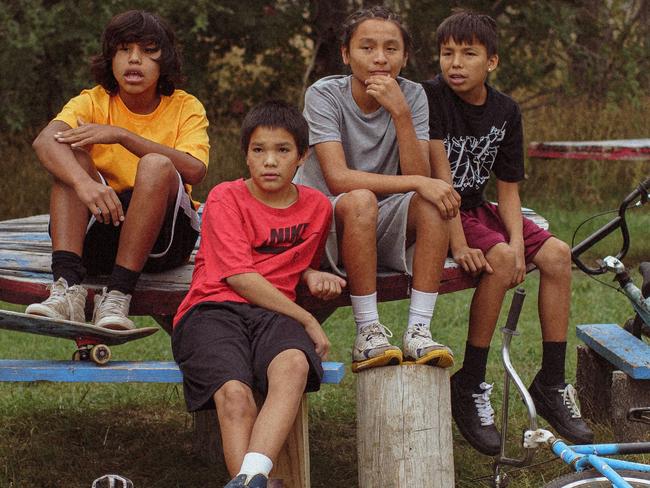
The Camera d’Or for best first film went to US film War Pony, co-directed by Australia’s Gina Gammell and actor Riley Keough (Elvis Presley’s granddaughter). Gammell says the film should have broad appeal even as it tells a very specific coming-of-age story of two boys from the Oglala Lakota tribe as they navigate life on their South Dakota reservation.
“It’s a very specific and personal story of the boys and their friends and their families,” she says. “What they explore and the history and the subtext is local, but it’s a story that the world should hear about and care about because our voices are very important. I think that art and film is one of the most powerful mediums in the world. So it’s really such an honour to help showcase their story here.”
Do they know about the prize on the reservation? “I think they do,” she says. “My phone is busy.”
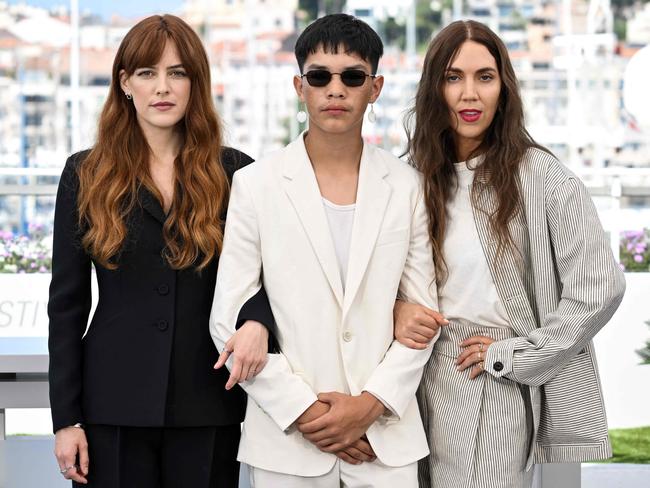
Of the films by Australian directors, Baz Luhrmann’s Elvis and George Miller’s Three Thousand Years of Longing screened out of competition, and Thomas M. Wright’s The Stranger failed to win a prize in the Un Certain Regard section.
The ultimate winner was French film The Worst Ones, directed by Lise Akoka and Romaine Gueret. As with Final Cut and Irma Vep, the story follows a film shoot, this time in a working-class French town, and the perils of casting non-professional actors. Variety notes that the film “surged past a number of buzzier critical favourites and hot distribution prospects to claim the award”. The Stranger must rank among them.
Two of the section’s strong films garnered acting awards. Vicky Krieps stuns as Empress Elisabeth of Austria in Corsage, a revisionist feminist take on the woman who went to great pains to have the smallest of waists and wore the tightest of corsets. Krieps also stars in the Un Certain Regard romance, More Than Ever, the final film starring Gaspard Ulliel, who tragically died in a skiing accident. In a sad coincidence, the film examines his character’s hopelessness in the face of his wife’s inevitable death.
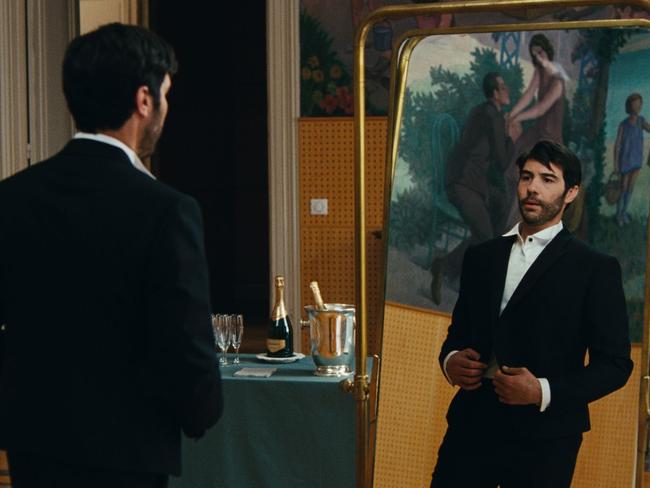
Krieps shared the acting award with French-Tunisian rising star Adam Bessa for the gripping Tunisian social drama Harka, based on a real-life case of a poverty-stricken man driven to self-immolation. The charismatic 30-year-old appeared alongside Chris Hemsworth in Netflix hit Extraction and has second billing alongside the Aussie star in the upcoming Extraction 2.
Bessa has been compared to French-Algerian star Tahar Rahim, who likewise has worked in English-language projects including Australian film Mary Magdalene, Netflix series The Serpent and The Mauritanian. Having just wrapped Ridley Scott’s Napoleon alongside Joaquin Phoenix, Rahim was also in Cannes to promote Don Juan, which screened in the non-competitive Cannes Premiere section. An offbeat version of Moliere’s classic, the musical film offers a critique of toxic masculinity and the notion of the great lover, as Rahim’s Laurent is left at the altar by his fiancee, Julie (Virginie Efira). He then sees her in every woman he meets.



To join the conversation, please log in. Don't have an account? Register
Join the conversation, you are commenting as Logout